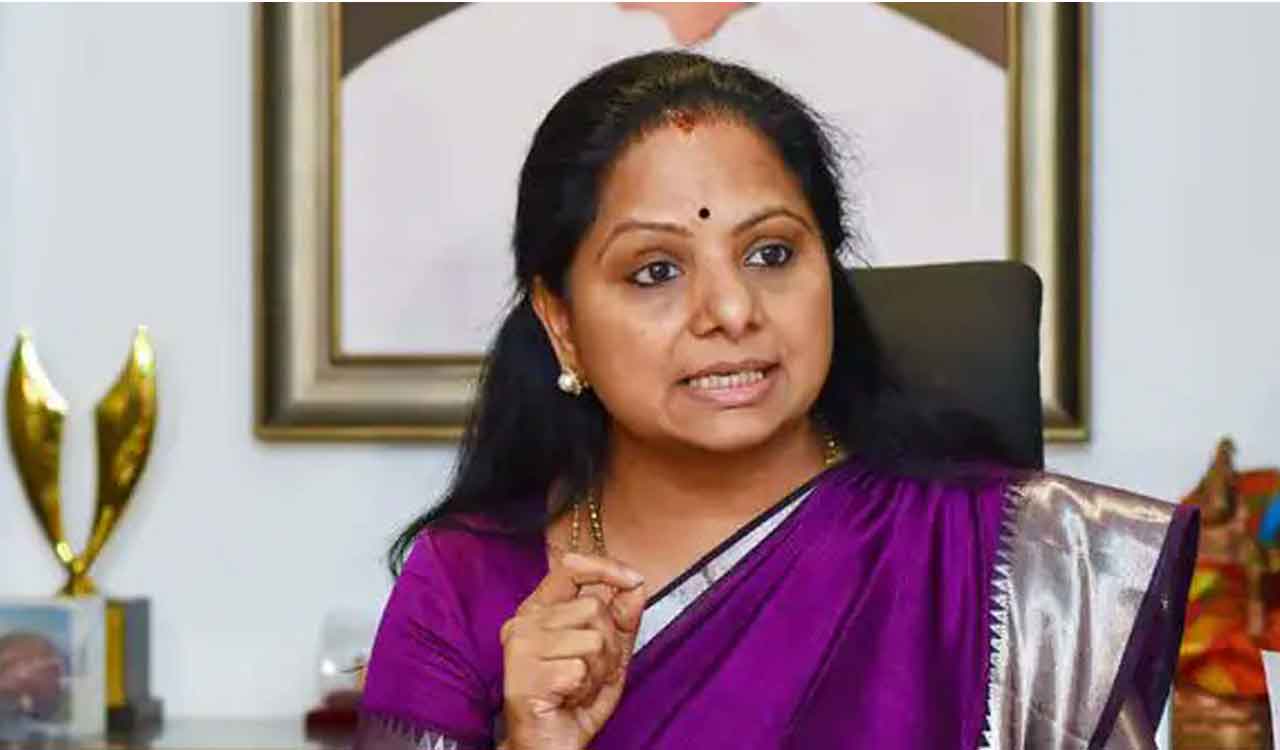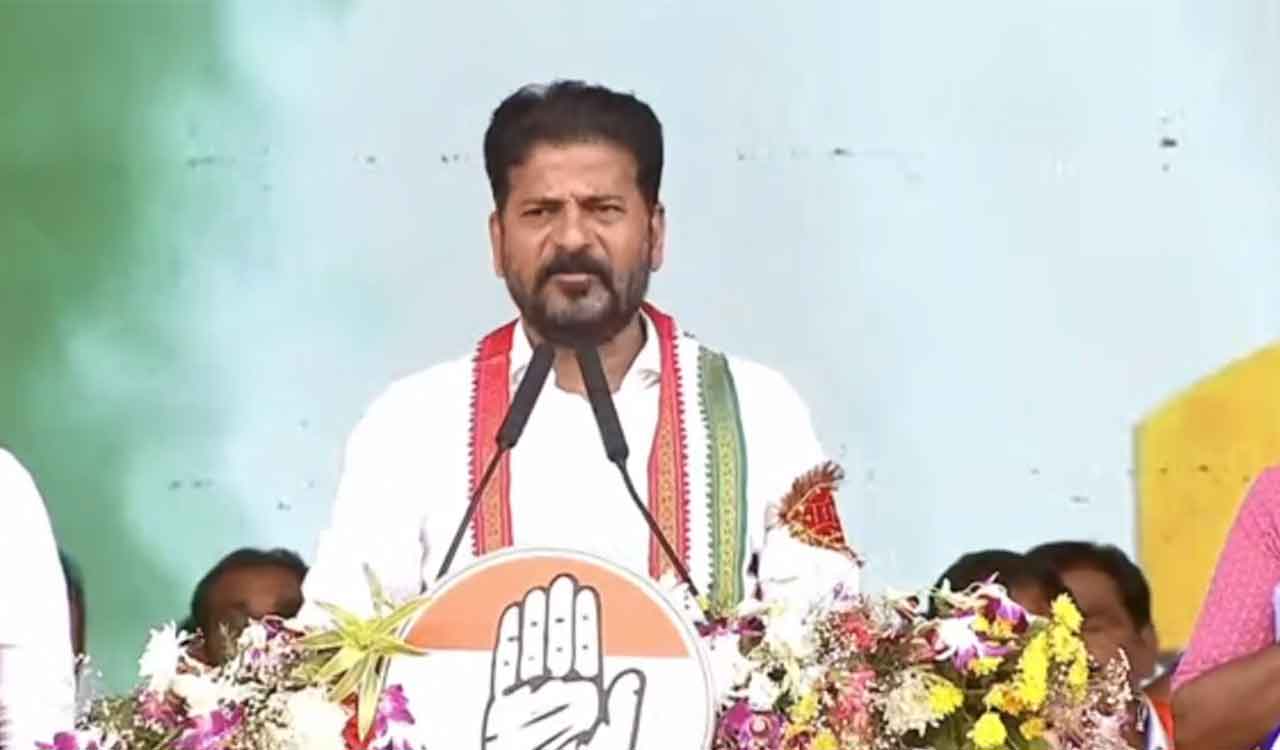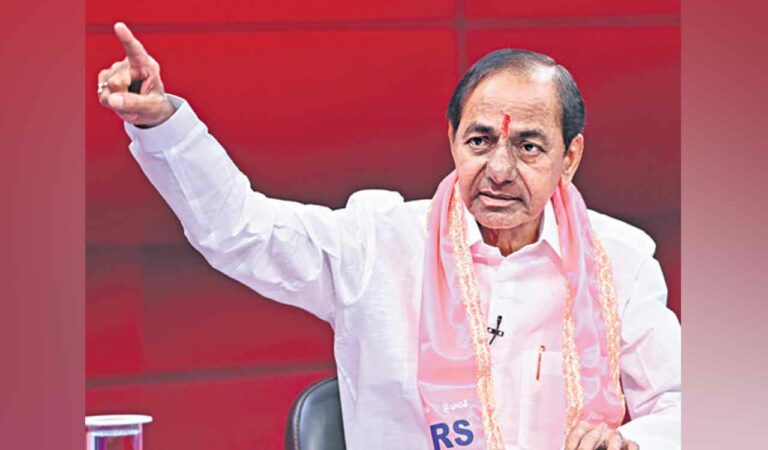
<!–
–>
The repercussions of these mounting tensions between the antagonistic powers in the region are bound to lead to huge political turmoil, thereby making the prospects for peace talks in the region increasingly elusive.
Published Date – 18 April 2024, 11:55 PM

As the Iranian-backed Palestinian group Hamas and Israel war continues to rattle the West Asian region, leaving a trail of death and destruction, this geographical landscape is descending into another war-like situation. Tensions have escalated between Iran and Israel, two major rival powers in the region, raising a huge concern among several countries across the globe. India is no exception.
The Iranian missile attack recently was in response to the suspected Israeli strike on its consular building in the Syrian capital Damascus which killed 12 people, including a senior general, Mohammad Reza Zahedi, who was a commander in the Islamic Revolutionary Guard Corps (IRGC).
The IRGC was formed following the Islamic Revolution in 1979 and helped Iran expand its sphere of influence in the West Asian region through several militia groups such as Hezbollah in Lebanon, Hamas in Palestinian territories and the Houthis in Yemen.
The barrage of missile attacks was thwarted by Israel, along with its allies such as the US, UK and Jordan.
Biased Support
This was Iran’s first direct attack on Israel after the 1979 Islamic Revolution. For decades, Iran relied on “shadow war” with the help of its proxies but this attack has changed the equation completely as the head of IRGC Major General Hossein Salami stated, an “attack on Iranian interests” would be met with a direct “retaliation from Iran” and also warned that any retaliation from Israel would be dealt with a “much larger” action. As expected, most of the nations unequivocally condemned Iran and supported Israel. The G7 nations, in its statement, expressed “full support and solidarity” to Israel and stated that they are “ready to take further measures” in response to any destabilising efforts by Iran.
US President Joe Biden reiterated the “Ironclad” support for Israel but at the same time conveyed to Israeli Prime Minister Benjamin Netanyahu that it would not participate in any direct counter-offensive move by Israel against Iran. Both domestic and regional factors influence such a response.
Biden wants to avoid any war with Iran, especially in an election year where he is seeking a reelection bid and wants to maintain stability in West Asia by avoiding any conflagration which can pull other nations in the region into conflict, especially the Arab states where most of the US military is stationed.
India’s response to this situation was also in the same vein. The Ministry of External Affairs called for an “immediate de-escalation” and to maintain “security and stability” in the region. This is in stark contrast to how India reacted to the October 7 attack on Israel by Hamas.
The Indian response to the current situation is viewed through the prism of today’s interconnected world due to globalisation, wherein no country can remain unaffected by ongoing conflicts anywhere on the globe. Every nation is interconnected and interdependent, making them vulnerable to global events and conflicts.
This is especially true when instead of a nonstate actor a sovereign nation enters into conflict threatening the security order of the region where India has deep strategic and economic interests.
Indian Interests
One of the important factors for India’s calculated response is the diaspora in the region. There are around 90 lakh Indian diaspora in the Gulf Cooperation Council (GCC) countries, 18,000 in Israel and roughly around 10,000 in Iran. Any major flare-up in West Asia would set off a diplomatic nightmare for India. Most of the Gulf air space falls between Israel and Iran, and any miscalculated venture can potentially put these nations on the front lines of the war.
The attack by Iran led to the closure of air space in many West Asian countries, including Jordan, Iraq and Lebanon. Reuters, quoting Mark Zee, the founder of OpsGroup, an international membership organisation for pilots and aviation staff, reported that this was the single biggest disruption since the 9/11 attack.
India would be looking at a humanitarian crisis, if the conflict turns into an all-out war in West Asia and if at all a situation arises to evacuate the affected Indian diaspora.
Another important factor is strengthening its economic partnership with the West Asian nations. New Delhi’s relations with Gulf countries have transcended the traditional domain of oil and remittances into a broader spectrum of cooperation. For example, India signed a free trade agreement with the United Arab Emirates (UAE) to improve bilateral trade (non-oil) to $100 billion by 2030. The UAE even emerged as the second biggest export market for Indiam and even committed a sovereign wealth fund of $75 billion for Indian infrastructure. India is also keen on establishing a trade corridor via the Middle East to Europe. Most importantly, India has vested interests in Iran as it is vital to connect Afghanistan and Central Asian countries through Iran.
This multifaceted approach underlines India’s intent to deepen its economic engagement and influence across the region going beyond ideological concerns. Strategic relations form another important aspect of why India wants a stable and peaceful West Asia.
India has a long-standing strategic partnership with Israel. In recent years, Israel has emerged as one of the top three defence exporters to India and also cooperates with India in countering terrorism. The Israel-Hamas conflict has also impacted the trade passing through the Red Sea which has come under attack by non-state actors, especially by Iranbacked militias. India has its biggestever contingent deployed in the region to tackle piracy.
Though it has not joined the US forces in combating piracy in the region, India has actively emerged as a net security provider on the maritime security front. Speaking about the “fragile” nature of the Gulf of Aden and the Red Sea, Chief of Naval Staff Admiral Hari Kumar said India was monitoring the situation closely with “10 ships deployed for the last 120 days” in the region to ensure safe passage of merchant ships.
Repercussions
As the situation continues to remain volatile in the region which may fuel the tension further by turning it into a wider conflict, the fallout of this war could impact the global economy which is already in the midst of two wars — Russia-Ukraine and Hamas-Israel — apart from destabilising the region further.
The repercussions of these mounting tensions between the antagonistic powers in the region are bound to lead to huge political turmoil, thereby making the prospects for peace talks in the region increasingly elusive.
In his book, “The India Way: Strategies for an Uncertain World”, External Affairs Minister S Jaishankar said India’s priorities would be to “engage America, manage China, cultivate Europe, reassure Russia, bring Japan into play”. Additionally, India needs to balance West Asia to maintain peace and stability in the region.

(Anudeep Gujjeti is a PhD candidate from the Department of Political Science, University of Hyderabad, Research Associate, Council for Social Development, and Young Leader, Pacific Forum, US. Akhil Kumar is a PhD from the Department of Political Science, University of Hyderabad)
<!–
–>
Source | Powered by Yes Mom Hosting






